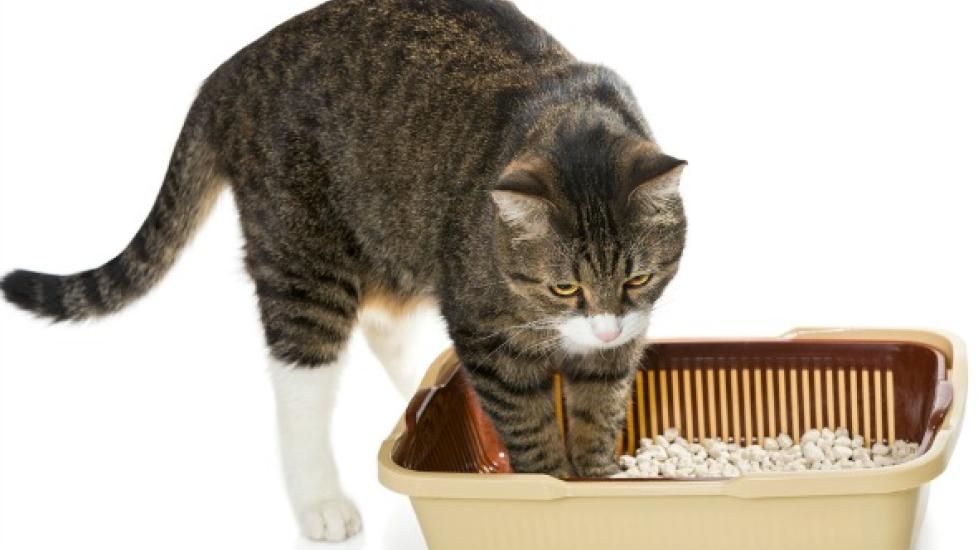What To Do About Common Urinary Problems in Cats
By Lorie Huston, DVM
Inappropriate urination is one of the most common problem behaviors observed in cats and one of the most common reasons cats are abandoned at shelters. Yes, it can be frustrating when your cat starts urinating outside of the litter box. However, it is also important to remember that cats don’t exhibit this type of behavior out of spite or to seek revenge. Inappropriate urination is a sign that something is wrong with your cat.
Why Do Cats Urinate Outside the Litter Box?
There are many reasons a cat may start peeing outside of the litter box. In some cases, the cat may be marking its territory. The cat may also be spraying, or urinating on a vertical surface such as a wall. Spraying is always a form of marking, but marking is not always accomplished by spraying. Some cats will mark horizontal surfaces or particular items. A common misconception is that only male cats spray or mark. However, female cats may also spray or mark their territory.
In other cases, your cat may simply dislike something about the litter box. The box may not be clean enough; the box may be in a location where the cat gets frightened or harassed while using the box; or your cat may simply prefer a different type of litter or substrate to relieve itself in or on.
Medical issues are still another cause for inappropriate urination in cats. There are many diseases that can be responsible, including:
- Feline lower urinary tract disease (FLUTD) is actually a complex of diseases and includes illnesses such as bladder infections, bladder stones, inflammation in the bladder and even, in rare cases, cancer of the lower urinary tract. Stress is thought to play a role in some cases of FLUTD, particularly in the case of interstitial or idiopathic cystitis where inflammation occurs in the bladder.
- Urethral obstruction is an especially serious form of feline lower urinary tract disease. This occurs primarily in male cats and results in the cat being unable to urinate. It is often the result of urinary stones or crystals becoming lodged in the narrow portion of the cat’s urethra but can also occur for other reasons. Urethral obstructions are a life-threatening situation that can quickly become fatal for your cat. Seek veterinary assistance immediately if your cat is unable to urinate. You may see your cat visiting the litter box frequently and/or may see him straining to urinate in or out of the litter box.
- Diabetes, kidney disease and other illnesses that cause your cat to urinate more often than normal may cause your cat to not make it to the box in time.
- Arthritis and other ailments that make it more difficult to enter or exit the litter box. This is especially true if your cat's litter box has high sides easily or if the litter box is found on a second or third floor.
Helping Cats with Urinary Problems
Often the most important aspect of helping your cat is detecting the problem at an early stage when treatment is more likely to be successful. This can only be done with regular veterinary visits. Cats are well-known for masking signs of pain, resulting in very subtle symptoms that are difficult for cat owners to detect. In addition, it can be difficult for cat owners to spot changes in litter box habits. Needless to say, if you do notice changes in your cat’s routine, you should consult with your veterinarian immediately.
Nutrition can also play a part in managing many of the diseases that can cause inappropriate urination. However, the best diet for your cat will depend on your cat’s individual situation. Diets that are high in protein and low in carbohydrates are often recommended for cats with diabetes, while diets that help control urine pH (the acidity level of the urine) are often advised for cats that tend to develop stones or crystals in the urine. There are even cat foods which contain glucosamine and/or fatty acids such as DHA or EPA. These are beneficial for cats with arthritis or other inflammatory conditions. Your veterinarian can help you determine which diet is best for your cat.
Cats, like most other animals, also need plenty of water in their diet. However, many cats do not drink water all that readily without encouragement. Wet foods are often recommended for cats because of their increased moisture content. Other solutions that are sometimes useful include adding water to your cat’s food, using a water fountain to stimulate interest, or leaving a water faucet dripping to allow your cat access.
If your cat has suddenly stopped using the litter box, you should not assume your cat has a behavioral issue. Schedule an appointment with your veterinarian to rule out medical problems and discuss appropriate measures, including environmental enrichment procedures, diet changes, and medications to correct the issue.
Explore More at petMD.com
How To Identify Common Problems in Senior Cats
